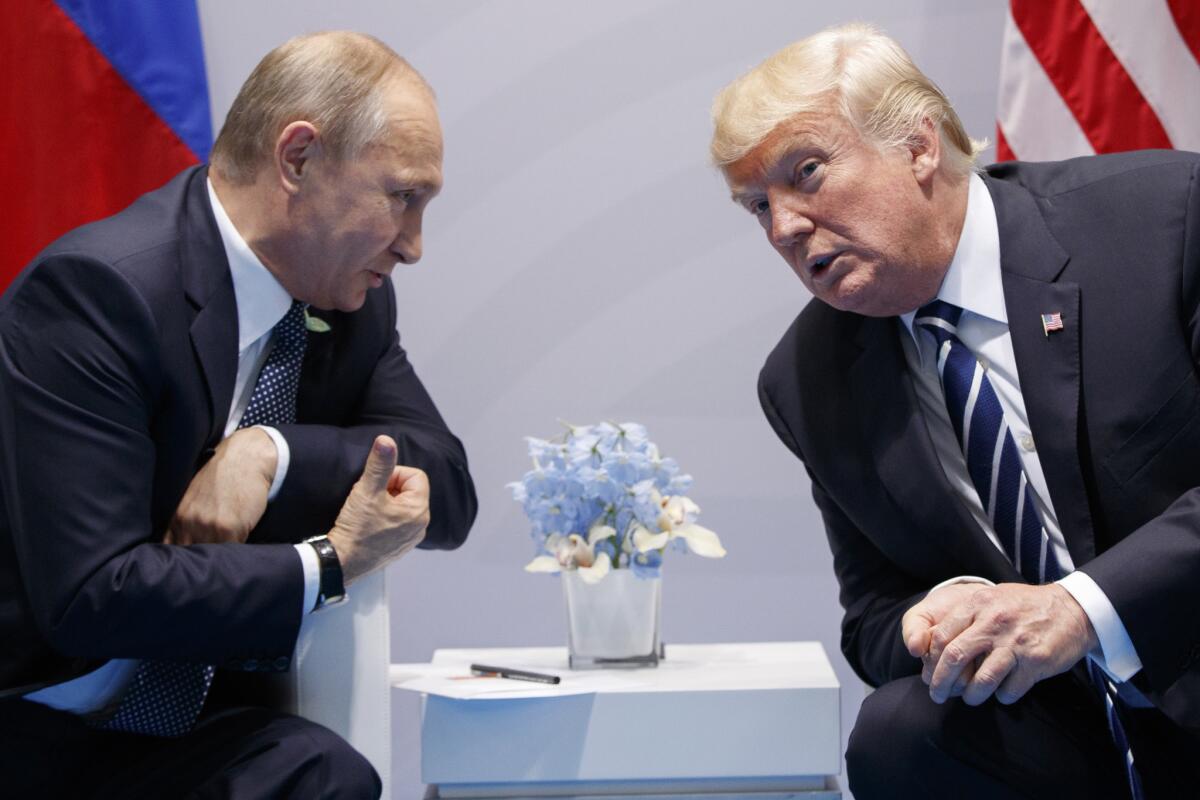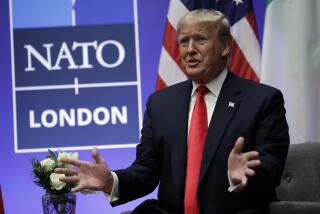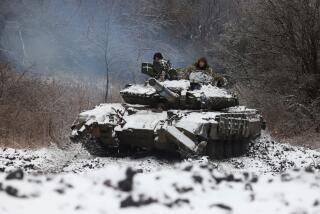Editorial: On nuclear arms control, Trump should cooperate with Putin

As the clock ticks toward the expiration of a major nuclear arms control agreement between the United States and Russia, negotiators have been discussing a deal to extend it. This is one circumstance in which no one should criticize President Trump for attempting to find an accommodation with Vladimir Putin.
The New START treaty, signed in 2010, places limits on intercontinental ballistic missiles, nuclear warheads, missile launchers and nuclear-armed bombers. It will expire in February unless the two nations agree to extend it for up to five years.
Expiration would be a disaster. The agreement doesn’t just prevent a further nuclear arms race between the U.S. and Russia; it also makes it easier for the superpowers to credibly campaign against nuclear proliferation around the world.
Earlier this year, the Trump administration’s chief negotiator unfairly disparaged the treaty as “a deeply flawed deal negotiated under the Obama-Biden administration” and insisted that it should be replaced by a new agreement that would also include China.
But U.S. and Russian negotiators have been talking about a compromise in which they would extend New START as Russia has proposed while freezing the total number of nuclear warheads — including tactical nuclear warheads not limited by the treaty — as the U.S. has demanded. The proposed deal also would include a framework for discussions on a new treaty that China could join in the future.
Russia has disputed reports that the two sides are close to a deal; a sticking point may be the difficulty of working out verification arrangements for a new warhead freeze. But with or without such a freeze, the treaty should be extended. Allowing it to expire would destabilize the arms-control process and deprive the U.S. of the opportunity to verify the size of the Russian nuclear arsenal.
Granted, the treaty doesn’t lapse until February, when the president might be Joe Biden, who has promised to pursue an extension of the agreement. But by agreeing now to extend it, Trump would preserve stability in the relationship between the two nuclear superpowers without foreclosing the possibility of a more ambitious agreement later. Yes, a deal announced before Tuesday might buoy Trump’s reelection hopes, but it also would be good for America.
More to Read
A cure for the common opinion
Get thought-provoking perspectives with our weekly newsletter.
You may occasionally receive promotional content from the Los Angeles Times.






